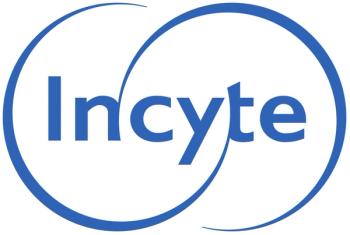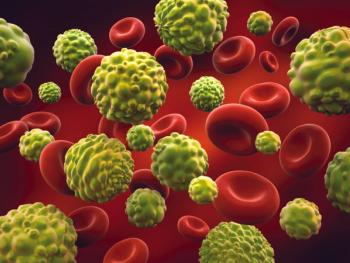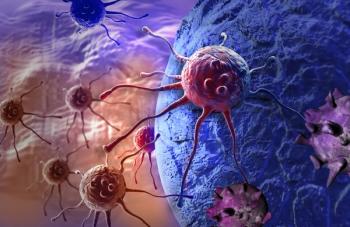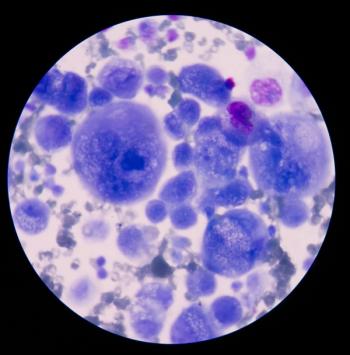
Rare Disease
Latest News
Latest Videos

More News

A study looking at the ways in which different countries handle appraisal and reimbursement processes for rare disease treatments (RDTs) revealed that implementing supplemental processes can aid in patient and physician decision making.

A phase 3 study of ruxolitinib (Jakafi) has met its primary end point of superior overall response rate (ORR) compared with the best available therapy in patients with moderate or severe steroid-refractory or steroid dependent chronic graft-versus-host disease (GVHD).

Umbilical cord blood provides a readily available source of stem cells to provide better access to hematopoietic stem cell transplantation to safely and effectively treat various noncancerous genetic disorders in children.

Using mindfulness meditation apps may provide an effective way to self-manage and reduce depression and anxiety in patients with myeloproliferative neoplasm (MPNs).

Researchers called for new guidance to address the underreporting of patient engagement in rare disease clinical trials after finding a dismal amount of patient-reported outcome measures listed in orphan drug labeling claims.

A new oral therapy approved by the FDA will provide patients with myelodysplastic syndromes, who typically visit a health care facility for intravenous treatment, with an oral at-home option that can be beneficial during the coronavirus pandemic.

A 52-week interim analysis confirmed previous findings highlighting the benefits of ruxolitinib in patients with polycythemia vera (PV) who are resistant or intolerant to hydroxyurea. The full study findings with a 24-month follow-up are still to come.

Authors hope that identifying knowledge gaps surrounding rare blood cancers, such as essential thrombocythemia and polycythemia vera, will inspire the science community to invest in new comprehensive research on how to properly diagnose and treat patients.

Patients with steroid refractory acute graft-versus-host-disease (GVHD) have a better overall response rate (ORR) when treated with ruxolitinib compared with the best available therapy, according to results from a phase 3 trial presented at the European Hematology Association’s annual meeting.

There are thousands of rare diseases, but they each affect so few patients that diagnosis and treatment can be delayed by years. Researchers examined how machine learning has been studied in rare diseases and identified areas of opportunity where future studies can improve care and treatment of rare diseases.

A review on the effects of Janus kinase (JAK) inhibitors for the treatment of myelofibrosis, including the first approved, ruxolitinib, and others currently in development.

In the real-world, ruxolitinib's approval to treat myelofibrosis has improved overall survival (OS) for elderly patients.

A study conducted by Mayo Clinic researchers revealed that a combined treatment featuring daratumumab in conjunction with the standard-of-care for patients with amyloid light-chain (AL) amyloidosis was more effective in improving the condition than the standard treatment alone.

A data analysis of real-world data found that the rise of orphan drugs (ODs) in the Republic of Korea has not solved all patient accessibility issues as budget concerns can make it difficult to justify reimbursements.

The incidence of rare cancers is higher in the United States than in Europe, but so is the survival rate, according to a study published in Cancer Medicine.

Researchers created a test to determine which children with Carbamoyl-Phosphate Synthetase 2, Aspartate Transcarbamylase, And Dihydroorotase (CAD) gene deficiency will benefit from receiving a nutritional supplement previously deemed effective in children with the condition, according to a study published in Genetics in Medicine.

Discontinuation of ruxolitinib was associated with increased morbidity burden and worse outcomes among patients with myelofibrosis.

Trastuzumab deruxtecan, an antibody–drug conjugate (ADC) marketed as Enhertu, has been granted Orphan Drug Designation (ODD) for the treatment of gastric cancer, including gastroesophageal junction cancer.

Ruxolitinib was found to be more cost-effective than the best available therapy (BAT) when the willingness-to-pay threshold for payers was at $150,000 and applied to patients with hydroxyurea resistant/intolerant polycythemia vera (PV) without splenomegaly, according to a new study.

Glucocorticoid-refractory acute graft-versus-host disease (GVHD) develops in approximately 50% of allogeneic stem-cell recipients and is a major cause of death.

A new report on 3 rare cases of patients with myeloproliferative neoplasms who developed T-cell malignancies sheds light on red flags clinicians should look for.

A new large-scale study of patients with myeloproliferative neoplasm finds they are at twice the risk of mortality from respiratory disease.

Although the results have to be confirmed in a larger clinical trial, the researchers hope that the biomarker could be a noninvasive marker of a rare pediatric liver disease.

The FDA Friday approved pemigatinib for adults with previously treated, unresectable locally advanced or metastatic cholangiocarcinoma with a fibroblast growth factor receptor 2 (FGFR2) fusion or other rearrangement.

Researchers found that the factors most associated with health related quality of life (HRQOL) in patients with facial palsy are age, bilateral facial palsy, severity of facial palsy, anxiety, and key personality traits, including extraversion and emotional stability.


















